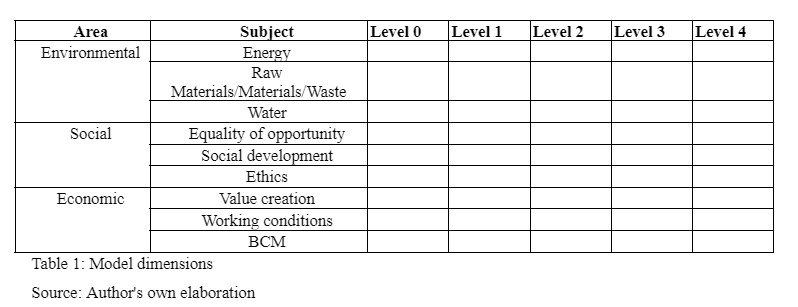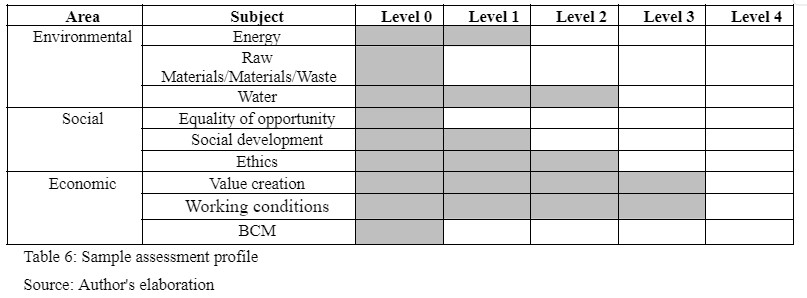Socially responsible and sustainable project management – how can the maturity and efficiency of the organisation be increased?
They can, therefore, be its creators, as in the case of destructors.On the one hand, it is possible to point to a need that has already been realized mainly among stakeholders, i.e. the need to offer environmentally neutral products and services (increasingly delivered through project implementation). On the other hand, it is also necessary to develop sustainable, socially responsible project management – that is, to focus on the process, not just its effects.
In studies on corporate social responsibility and sustainable development, one can often find information that socially responsible management (frequently referred to as simply responsible management) and sustainable management can be treated as synonyms. Although this is a debatable statement, it should be emphasized that organizations that implement an accountable management model must necessarily develop practices consistent with sustainable development. It assumes respect for and balances the so-called triple bottom line – economic, environmental, and social – in its activities. At the same time, the “social” component, or CSR for short, suggests that it is a concept that considers only one of the guiding lines.
However, as the review of the definition and interpretation of CSR shows, using the term CSR to refer to the other guiding lines is permissible and widely accepted. “Socially responsible project management” is treated here as an approach to project management (in terms of production, support and management processes and project products/results) in which the project management respects the elements of the three guiding principles.
The project’s success means achieving business benefits, providing value to society and at least not deteriorating the condition of the natural environment.
“Projects can contribute to a company’s sustainability. Therefore, sustainability concepts will be reflected in project management. And while some aspects of sustainability can be found in various project management standards, it must be said that the integration of sustainability into projects and project management is not yet fully understood.”
Silvius A., Schipper R. (2015)
This article is a starting point for discussing maturity in socially responsible and sustainable project management. The model I propose is based on the analysis of selected models of project maturity on the one hand and models, concepts, and guidelines in the field of sustainable development and social responsibility on the other. The main assumption of the model is to define the organisation’s five levels of maturity.
They are described as follows:
- Level 0: There is no activity in the process or product area.
- Level 1: Activities in the process and in the product are piecemeal and are carried out by the project manager’s decision. Most often, they mean defining general slogans/requirements,
- level 2: Socially responsible project management activities are undertaken on the basis of project management guidelines/methodologies – they apply to most or all projects in the organisation,
- Level 3: Elements of socially responsible project management are one of the basic and obligatory elements of the business justification of any project. They are also the core values that guide project managers; the organisation implements solutions in the field of program and portfolio management,
- Level 4: At the organisational level, continuous improvement of the approach to socially responsible project management is carried out.
- environmental area,
- social area,
- economic area.
Within the social area, three groups of topics have also been identified. They were devoted to the issues of equal opportunities in the project (in terms of gender, culture, nationality, fitness, etc.), social development (activities aimed at the development of local communities through the implementation of the project – both in the implementation processes and through the provision of appropriate products) and ethics in action.
The last line of guidance is the economic area. Here, too, three themes are defined. The first one concerns the issue of building value for the organisation through the implementation of the project. The second topic touches upon the problems of working conditions and creating an environment conducive to developing the team in the project. The last, very important topic is the so-called Business Continuity Management (BCM). According to the assumptions of the model, implementing the project in the organisation should support building the organisation’s resilience, economic security, etc.

What is important is that the organisation’s assessment is carried out independently in each area and topic. This makes it possible to create precise assessment profiles and accurately plan a “roadmap” for improving maturity. The table shows an example of an assessment profile using the proposed model.

Summary
Observation of changes in the way individuals, organisations and entire economies function allows us to assume that the issues of social responsibility of project activities will gain in importance. However, this still needs to change the fact that it is necessary to build awareness of the topics discussed in this article.
The maturity model developed in this way proposes to organise cross-cutting issues within five levels at which an organisation developing its competencies in the analysed area may find itself. In addition, the characteristics of the manifestations of maturity were distinguished from the point of view of both project management processes and their effects.
The proposed maturity model aligns with the main benefits of using maturity models. First, the models provide a “roadmap” for organisations that want to build their practices in a given area consistently. The presented model can be significant support in the process of creating a system of socially responsible project management, as a result leading to the achievement of better indicators of project success – understood as providing business benefits to stakeholders, providing value to the society and at least not deteriorating the condition of the natural environment. The assumption is that the long-term effect is the organisation’s transformation from the CSR (Corporate Social Responsibility) approach to the CSV (Creating Shared Values) approach.
Contact us if you are interested in assessing your company’s sustainability project maturity! As part of the maturity assessment, you will receive a report with indicated areas for improvement.

Mateusz Juchniewicz
Professor at the Warsaw School of Economics, head of the Department of Project Management at the Warsaw School of Economics. A graduate of Management and Marketing at the Warsaw School of Economics. Head and lecturer of Postgraduate Studies in Project Management, other postgraduate, MBA and doctoral studies. Manager and participant in scientific and research projects, consulting (e.g. building the project maturity of the organization), implementation (e.g. implementation of methodologies, project management offices, improvement of business processes) and training projects. It cooperates with both the public sector (including the Chancellery of the Prime Minister, the Supreme Audit Office, the Ministry of Infrastructure, the Ministry of Climate and Environment, the Ministry of Health, the Medical Research Agency, other units of the public finance sector) and the private sector (mainly companies from the energy, armaments, transport, R+D and construction sectors). He specializes in the issue of project maturity and risk management in projects and projects in a multicultural environment. Author of several dozen publications in the management field, including the first monograph in Poland devoted to the project maturity of organizations. Certified project manager in project management (PRINCE2®, Professional Scrum Master and AgilePM),® portfolio management (MoP®) and risk management (M_o_R®). Member of PMI and IPMA.


